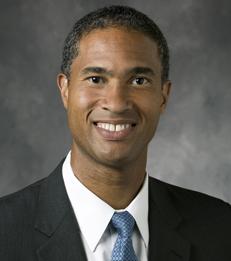Opinion
Averting Tragedy: Corporate Ethics and the Educational Commons
—


Avoiding the tragedy of an under-skilled workforce is a shared responsibility, but because corporations stand to profit the most from hiring college graduates, they have a particular ethical obligation to create broader access to the educational pathway.
By Peter Henry
In the past few decades, American corporations have endured withering criticism for an alleged failure to uphold their end of the social contract. From the “giant sucking sound” of jobs moving across our borders, to blame placed on lending institutions for the financial crisis, to the present outrage over corporate “tax inversions” as in the recent Pfizer/Allergan merger, corporations have been vilified and accused of pursuing strategies that, to paraphrase White House Press Secretary Josh Earnest’s response to the Pfizer deal, amount to renouncing citizenship while free-riding on all of the advantages America offers.
One of the greatest corporate obligations today should therefore be to help universities and elected officials address the present lack of access to higher education. When corporations hire talented college graduates who drive their bottom line, but fail to contribute commensurately to the educational ecosystem that produces those graduates, it is tantamount to fishing in a lake without contributing to the cost of repopulation—an unfortunate outcome economists call the “tragedy of the commons.”
Today’s American tragedy is playing out not on the town green, but on campus quads, through a lack of access to higher education. A child born into the top quartile of the US income distribution has an 85 percent chance of going to college, whereas the odds for those from the bottom quartile is just 8 percent. Furthermore, 17 percent of high-achieving high school seniors come from this lower quartile. Taken together, these numbers suggest that a large fraction of high-ability high school seniors are likely to remain in the low-skilled part of the workforce in spite of their potential.
Read the full article as published in Ethisphere.
___
Peter Henry is the Dean of the Leonard N. Stern School of Business, Dean Richard R. West Professor of Business and William R. Berkley Professor of Economics & Finance.
Fair or unfair, the criticisms spring from a sound moral premise: companies have an ethical obligation to contribute to the society and economic system in which they operate and from which they derive great benefit.
One of the greatest corporate obligations today should therefore be to help universities and elected officials address the present lack of access to higher education. When corporations hire talented college graduates who drive their bottom line, but fail to contribute commensurately to the educational ecosystem that produces those graduates, it is tantamount to fishing in a lake without contributing to the cost of repopulation—an unfortunate outcome economists call the “tragedy of the commons.”
Today’s American tragedy is playing out not on the town green, but on campus quads, through a lack of access to higher education. A child born into the top quartile of the US income distribution has an 85 percent chance of going to college, whereas the odds for those from the bottom quartile is just 8 percent. Furthermore, 17 percent of high-achieving high school seniors come from this lower quartile. Taken together, these numbers suggest that a large fraction of high-ability high school seniors are likely to remain in the low-skilled part of the workforce in spite of their potential.
Read the full article as published in Ethisphere.
___
Peter Henry is the Dean of the Leonard N. Stern School of Business, Dean Richard R. West Professor of Business and William R. Berkley Professor of Economics & Finance.
